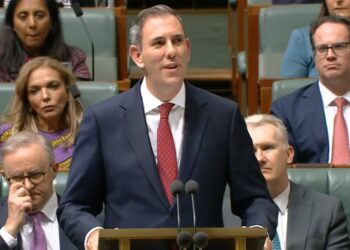Announcing the bank’s FY20 results on Wednesday, CBA chief executive Matt Comyn pointed out the bank had “substantially divested” its wealth management businesses over the course of the year, in line with a strategy of simplification and specialisation in retail, business and digital banking.
The strategy appears to be paying dividends for CBA, which, despite flagging an 11 per cent downturn in profits year on year and over $2.5 billion in loan impairments, announced a $7.3 billion full-year cash net profit after tax.
“The strength of our core banking businesses, combined with strong operational performance, has delivered good outcomes for our customer and shareholders – despite the challenges presented by lower interest rates and COVID-19,” Mr Comyn said.
The bank made a $2.09 billion gain from the sale of a number of wealth businesses over the course of the year, including investment manager CFSGAM in August 2019 and dealer group Count in October 2019.
CBA also closed licensee Financial Wisdom in June, commenced its joint co-operation agreement with AIA Australia for life insurance business CommInsure in November 2019 and flagged it expected to divest from Colonial First State following the group’s sale to private equity firm KKR.
Following a switch to digitally-focused, direct-to-investor wealth products, the bank saw 400,000 new clients open accounts on its CommSec trading platform over the course of the year, and launched micro-investing app CommSec Pocket, which currently has around 100,000 customers.
However, CBA flagged it had spent over $380 million on remediation during the financial year, and completed almost 80 per cent of its reporting requirements under a remedial action plan ordered by APRA following its 2018 prudential inquiry into CBA.
The bank also confirmed it had nine class actions currently underway against it, four of which related to super products. ASIC had also commenced four regulatory actions against CBA over the course of the year relating to royal commission case studies, two of which the bank did not defend, CBA said in its results presentation.




These days Ads for Class Actions are popping up like popcorn in my news feeds…